The revised Law on Real Estate Business, after receiving and adjusting, does not agree with the proposal to require the purchase, sale, transfer, and lease of future real estate through the floor.
On the morning of October 31, continuing the 6th session of the 15th National Assembly , the National Assembly discussed in the hall a number of contents with different opinions of the draft revised Law on Real Estate Business .
Reporting on the reception and revision of the amended Law on Real Estate Business, Chairman of the Economic Committee Vu Hong Thanh said that at the 5th session last June, many delegates disagreed with the Government's proposal to require the purchase, sale, transfer, and lease of future real estate to be conducted through the floor, while other transactions were not required.

Chairman of the Economic Committee Vu Hong Thanh
GIA HAN
According to Mr. Thanh, many delegates at the 5th session did not agree to make it mandatory, but only encouraged real estate transactions through the floor. The National Assembly Standing Committee agreed with this view, and the draft revised Law on Real Estate Business after explanation and acceptance also did not require real estate transactions to be through the floor, but only encouraged.
The Standing Committee of the National Assembly explained that the implementation of the 2014 Law on Real Estate Business shows that current real estate trading floors are not capable enough to ensure the legal safety of transactions. There have even been many cases of real estate trading floors acting to disrupt the market.
"Forcing real estate transactions will lead to the risk of exploitation and will not ensure the development of a healthy, safe and sustainable real estate market," Mr. Thanh said.
In addition, to ensure strictness, the draft Law will add Article 59 on the management of real estate trading floors. Accordingly, it will clearly define the responsibilities of the state management agency of housing and real estate market at the provincial level in managing the activities of the floors.
When to put down a deposit to buy a house?
Also according to Mr. Vu Hong Thanh, the regulations on future housing transactions (housing, real estate on paper) received many comments from National Assembly delegates at the 5th session.
Accordingly, regarding deposits when buying and selling real estate on paper, some opinions proposed to add a regulation that only deposits are accepted when the house or construction project is qualified to be put into business. Some opinions suggested that the investor must be granted an investment certificate, a decision on land allocation, land lease and have the detailed planning 1/500 approved before receiving deposits from buyers.
Due to many different opinions, the National Assembly Standing Committee proposed two options: first, project investors are only allowed to collect deposits from customers when the houses and construction works are qualified to be put into business and have conducted transactions according to regulations.
Mr. Thanh said that this is a low-risk option for customers, because the deposit is only made when the real estate is eligible for business and the two parties sign a contract, thus limiting the occurrence of disputes. This option was chosen by the Government and 38% of the opinions of the National Assembly delegations and National Assembly agencies.
But this method also has limitations in that the investor does not have the opportunity to receive deposits and sign contracts with potential customers.
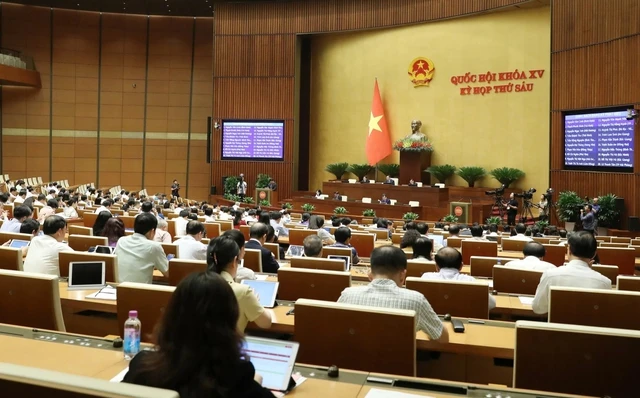
The National Assembly discussed the contents of the revised Law on Real Estate Business on the morning of October 31.
GIA HAN
The second option is that the investor only collects the deposit according to the agreement with the customer when the project has a basic design that has been appraised by a state agency and has one of the documents on land use rights. The deposit agreement must clearly state the price of selling, renting, buying the house, construction work. The maximum deposit amount is regulated by the Government but does not exceed 10% of the selling or renting price.
This option has the advantage that the investor can mobilize capital early, but it also poses risks for customers because they have to pay money before the project has started construction. Mr. Thanh said that the National Assembly Standing Committee proposed that the Government add content to assess the impact of this option.
Two payment options
Regarding payments for buying, selling, and renting houses and real estate on paper, Mr. Thanh said that the National Assembly Standing Committee also proposed two options. Accordingly, option 1, the seller can only collect a maximum of 95% of the value of the sale and purchase contract if the buyer or lessee has not been granted a certificate of land use rights, house ownership, and other assets attached to the land.
The remaining 5% of the value will be paid when the certificates are issued to the buyer by the competent authority.
Option 2, the seller can only collect a maximum of 95% of the sales contract value if the buyer or hire-purchaser has not been granted a certificate of land use rights, house ownership and other assets attached to the land.
The remaining 5% of the contract value is transferred by the customer to the investor's account opened at the bank for management and the investor is not allowed to use this amount. The costs and profits arising from this amount are agreed upon by the investor and the bank.
The investor may only use this amount together with profits (if any) when the competent state agency issues a certificate of land use rights, house ownership rights and other assets attached to the land to the buyer or lessee.
Thanhnien.vn


![[Photo] Prime Minister Pham Minh Chinh chairs the second meeting of the Steering Committee on private economic development.](https://vphoto.vietnam.vn/thumb/1200x675/vietnam/resource/IMAGE/2025/11/01/1762006716873_dsc-9145-jpg.webp)











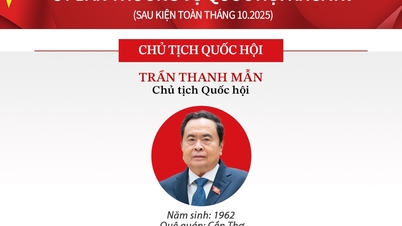











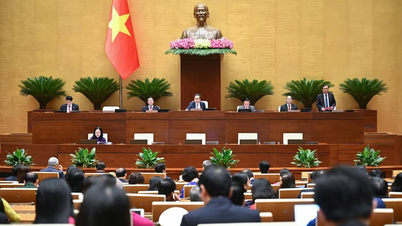
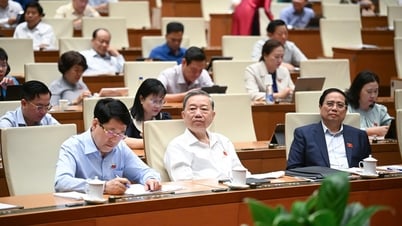























































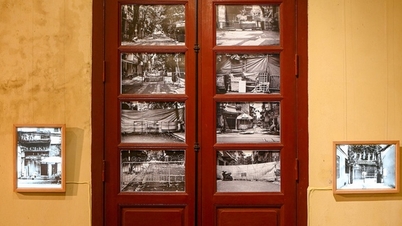




























Comment (0)